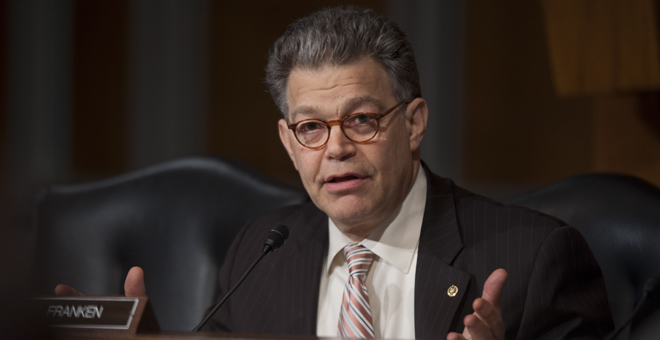Updated 9:55 am ET, Friday, May 11
Sen. Al Franken (D-MN) is concerned that law enforcement agencies are asking the nation’s wireless carrier companies to turn over GPS location data of users without a search warrant.
So, Franken asked the Justice Department directly on Thursday in an open letter addressed to Attorney General Eric Holder: How many times has the agency sought location data from cell phone companies over the past five years, for how many individuals, and how much money has it paid to get the data?
“I am eager to learn about how frequently the Department requests location information and what legal standard the Department believes it must meet to obtain it,” Franken wrote in his letter, giving the DOJ one month to answer them.
The American Civil Liberties Union quickly applauded the move, with ACLU lobbyist Chris Calabrese writing in a blog post: “Letters like these are the first step in oversight. We can’t wait to hear the answers.”
The ACLU itself has been aggressively pursuing further information on how widespread the practice of cell phone location snooping is, publishing the results of its Freedom of Information Act and public records requests for such records from the Justice Department and state and local law enforcement authorities.
The local results alone revealed that most of the nation’s law enforcement agencies don’t seek a warrant and yet regularly request cell phone location data, “routinely violating American’s privacy rights.”
But the Justice Department recently pushed back on the ACLU’s work, with Jason Weinstein, deputy assistant attorney general for the DOJ’s criminal division, telling Congress in May that requiring probable cause for a warrant in order to obtain all types of location information from cell towers would “cripple” law enforcement.
Cell phone companies, too, seem to agree, at least in California, where CTIA, the trade agency that represents the industry, has come out in opposition to a state bill requiring that police get warrants to obtain cell phone GPS data.
As Franken and the ACLU and others have pointed out, though, the practice would seem to come uncomfortably close to the practice of law enforcement officers attaching GPS tracking devices to a suspect’s car without a warrant, which was specifically ruled unconstitutional by the Supreme Court in a historic case, U.S. vs. Jones, in January.
Now it’s up to the Justice Department to respond. Stay tuned.
Correction: This story originally incorrectly characterized Weinstein’s comment as stating that requiring warrants for GPS information would cripple law enforcement. In fact, Weinstein was talking about requiring how requiring the same uniform standard of probable cause to obtain a warrant for “all types of location information” would be a mistake and would “cripple” many national law enforcement investigations.









